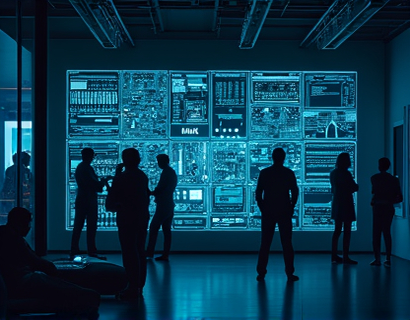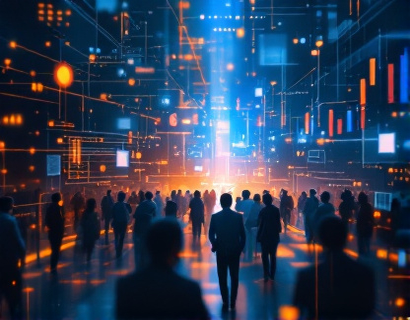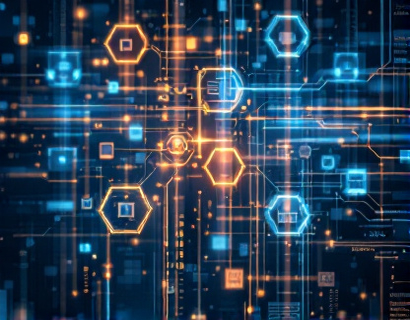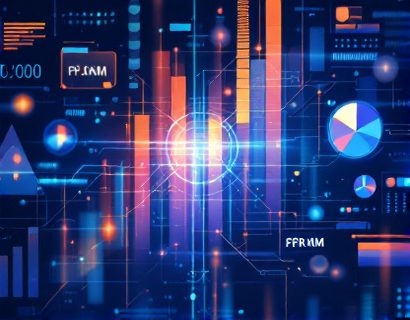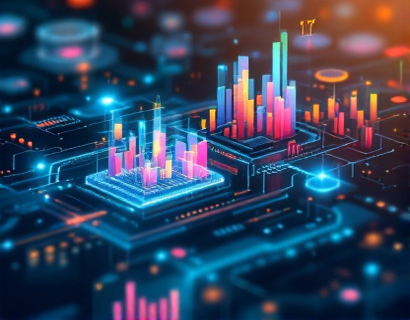The Synergy of Crypto and AI: Revolutionizing Digital Engagement for Next-Gen Ecosystem Solutions
The intersection of blockchain technology and artificial intelligence (AI) is giving rise to transformative solutions that are redefining digital engagement. This fusion is not just a technological curiosity but a powerful force driving growth and innovation across various sectors. As tech enthusiasts and early adopters increasingly turn their attention to cryptocurrency and AI solutions, it's crucial to understand how these advanced technologies are synergizing to enhance user experiences and unlock new opportunities.
The traditional digital landscape is characterized by centralized systems where user data is often siloed and control is concentrated in the hands of a few. The advent of blockchain technology has introduced a decentralized paradigm, enabling secure, transparent, and tamper-proof transactions. When combined with AI, which excels in processing vast amounts of data to derive insights and automate complex tasks, the potential for innovation becomes immense.
One of the key areas where this synergy is making a significant impact is in user authentication and identity management. Traditional methods rely on centralized databases, making them vulnerable to breaches and hacks. By leveraging blockchain, user identities can be stored in a decentralized manner, ensuring greater security and privacy. AI algorithms can then analyze this data to create more robust and adaptive authentication systems, reducing the risk of unauthorized access and enhancing user trust.
Another critical aspect is data ownership and control. In the current digital ecosystem, users often have little control over their personal data, which is collected and monetized by corporations. Blockchain technology empowers users by giving them ownership of their data through decentralized identity solutions. AI can further enhance this by enabling users to manage and monetize their data more effectively. For instance, AI-driven platforms can help users understand the value of their data and negotiate better terms with data buyers, creating a more equitable data economy.
The integration of AI in blockchain-based ecosystems also optimizes smart contract execution. Smart contracts are self-executing contracts with the terms directly written into code. However, their effectiveness can be limited by the need for complex logic and decision-making. AI can augment smart contracts by providing advanced analytics and predictive capabilities, allowing for more sophisticated and dynamic contract behaviors. This not only improves efficiency but also opens up new possibilities for automated and intelligent contract management.
In the realm of content creation and distribution, the combination of blockchain and AI is transforming how creators and consumers interact. Blockchain ensures that content creators receive fair compensation for their work through transparent and secure payment systems. AI algorithms can analyze content trends, audience preferences, and engagement metrics to optimize content delivery and personalization. This results in a more tailored and engaging experience for users, while also providing creators with valuable insights to refine their content strategies.
The gaming industry is another sector where the fusion of blockchain and AI is driving significant changes. Blockchain provides a secure and transparent way to manage in-game assets, ensuring that players truly own their digital items. AI can enhance gameplay by creating more realistic and adaptive non-playable characters (NPCs), generating dynamic game environments, and personalizing user experiences. The combination of these technologies fosters a more immersive and engaging gaming environment, attracting both casual and hardcore gamers.
Supply chain management is yet another area benefiting from the synergy of blockchain and AI. Blockchain ensures transparency and traceability in the supply chain, reducing fraud and improving efficiency. AI can analyze vast amounts of supply chain data to predict bottlenecks, optimize logistics, and enhance inventory management. This not only reduces costs but also ensures that products reach consumers faster and more reliably, enhancing overall customer satisfaction.
In the financial sector, the integration of blockchain and AI is revolutionizing traditional banking and finance. Blockchain enables faster, cheaper, and more secure transactions, while AI can detect fraudulent activities, manage risks, and provide personalized financial services. AI-driven chatbots and virtual assistants powered by blockchain can offer 24/7 customer support, ensuring that users have access to timely and accurate information.
The healthcare industry is also witnessing a transformative shift thanks to the combination of blockchain and AI. Blockchain can secure patient data, ensuring privacy and compliance with regulations like GDPR. AI algorithms can analyze medical data to identify patterns, predict disease outbreaks, and personalize treatment plans. This not only improves patient outcomes but also reduces healthcare costs by streamlining operations and enhancing efficiency.
For tech enthusiasts and early adopters, the potential of blockchain and AI is vast. These technologies are not just tools but foundational elements of a new digital ecosystem. As more applications and services emerge, the demand for skilled professionals who can develop, implement, and manage these solutions will grow. Education and training programs focused on blockchain and AI will become increasingly important, equipping the next generation of innovators with the skills needed to thrive in this evolving landscape.
The future of digital engagement is being shaped by the powerful combination of blockchain and AI. By enhancing security, privacy, and user control, these technologies are creating more trustworthy and user-centric digital experiences. As the ecosystem continues to evolve, the opportunities for innovation and growth are boundless, promising a brighter and more connected digital future for all.
















